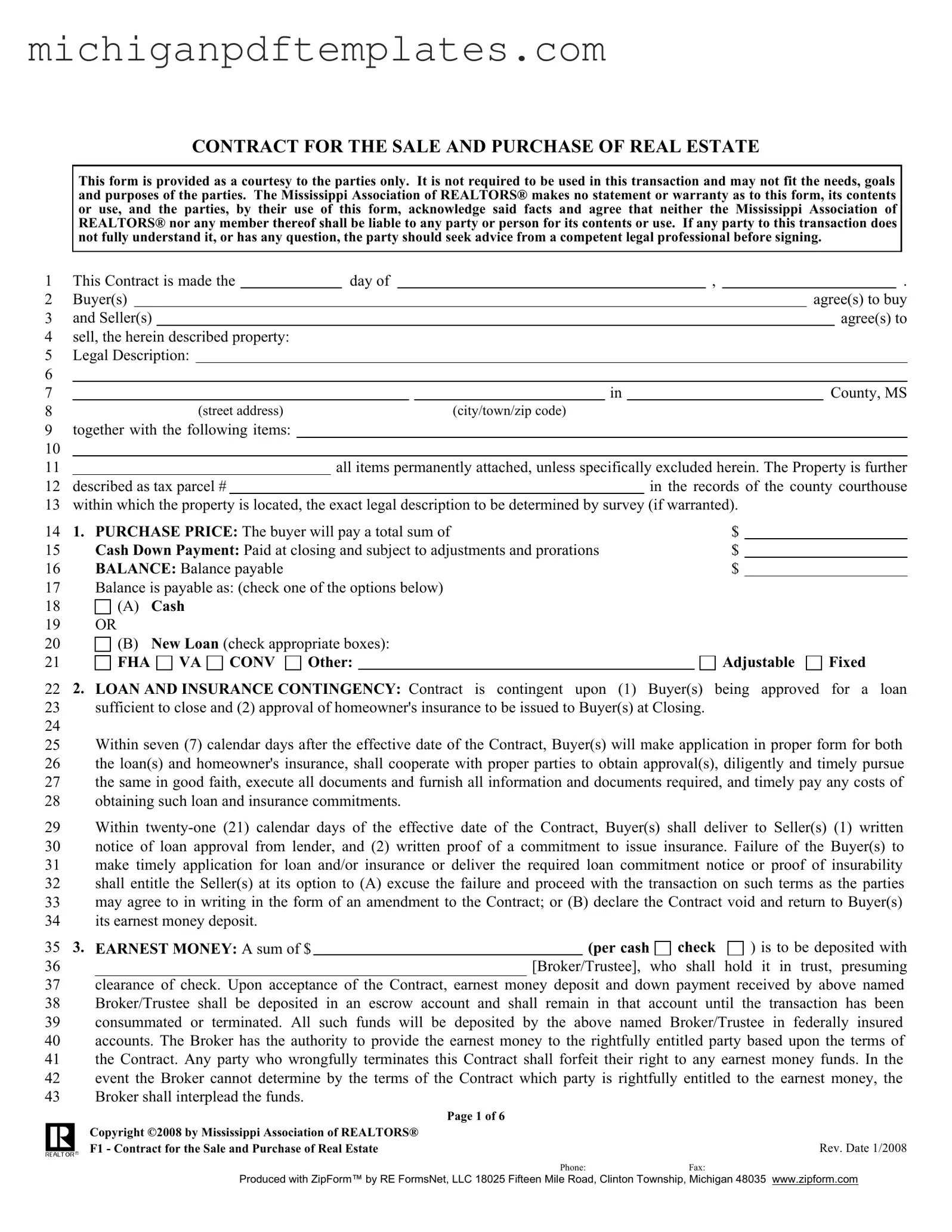Fill in Your Michigan Real Estate Buy Form
The Michigan Real Estate Buy form is a contract used for the sale and purchase of real estate in Michigan. This form serves as a guideline for buyers and sellers to outline the terms of their agreement, although its use is not mandatory. It is essential for parties to fully understand the form and seek legal advice if needed before proceeding.
For a seamless transaction, consider filling out the form by clicking the button below.
Get Your Form Now

Fill in Your Michigan Real Estate Buy Form
Get Your Form Now

Get Your Form Now
or
▼ PDF Form
Finish this form quickly and move on
Fill in and complete Michigan Real Estate Buy online quickly.